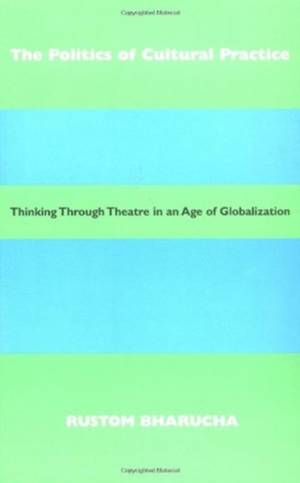
- Retrait gratuit dans votre magasin Club
- 7.000.000 titres dans notre catalogue
- Payer en toute sécurité
- Toujours un magasin près de chez vous
- Retrait gratuit dans votre magasin Club
- 7.000.0000 titres dans notre catalogue
- Payer en toute sécurité
- Toujours un magasin près de chez vous
The Politics of Cultural Practice
Thinking through Theatre in an Age of Globalization
Rustom Bharucha
Livre broché
30,95 €
+ 61 points
Description
Is equitable global cultural exchange possible?
Spécifications
Parties prenantes
- Auteur(s) :
- Editeur:
Contenu
- Nombre de pages :
- 203
Caractéristiques
- EAN:
- 9780819564245
- Date de parution :
- 26-11-00
- Format:
- Livre broché
- Dimensions :
- 156 mm x 235 mm

Les avis
Nous publions uniquement les avis qui respectent les conditions requises. Consultez nos conditions pour les avis.






